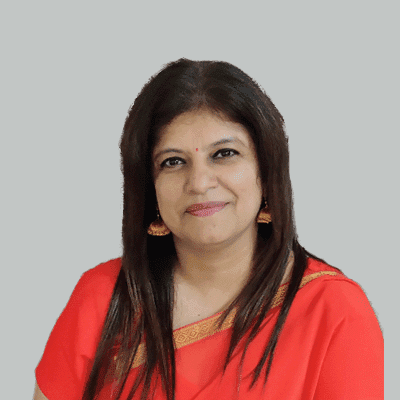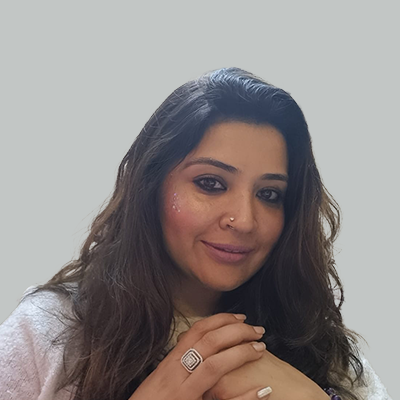Time and again, we hear people say, “ I always like keeping things clean, I have OCD”, and “She has OCD when it comes to placing things at home!”. We often throw around the term OCD so casually that we fail to realize how serious this disorder is and how is the life of a person suffering from OCD.
What is Obsessive Compulsive Disorder?
Obsessive compulsive disorder (OCD) has two major components: obsessions and compulsions. Obsessions constitute of recurring & persistent thoughts, urges, or images & compulsions which consists of repetitive behaviors or mental acts that an individual needs to perform in response to an obsession. The individual may also be aware of the fact that the thoughts they are having aren’t serving them in any fruitful way or are not really logical or productive and feel extremely distressed when they aren’t able to get rid of such intrusive thoughts.
There is also a risk of self-harm and suicidal tendencies as well in people who have OCD. It has been observed that males have an early age onset than females even though females are more prone to develop OCD. The risk of such behaviors and tendencies increases much more especially if there is a co-morbidity especially with another disorder such as depression.
Our Wellness Programs
Symptoms of Obsessive Compulsive Disorder (OCD)
According to the Diagnostic Statistical Manual-5 (DSM5)2 the symptoms of OCD are as follows:
- Presence of obsessions, compulsions or both
- The obsessions or compulsions are time consuming or cause clinically significant amount of stress or impairment in social, occupational or other important areas of functioning as an individual
- The symptoms should not be caused due to the physiological effects of a substance or another medical condition
Looking for services related to this subject? Get in touch with these experts today!!
Experts

Neelam Parwani

India
Life Coach
Experience: 5 years

Sapna Zarwal

India
Psychologist
Experience: 19 years

Deepti Gandhi

India
Life Coach
Experience: 6 years

Zabby Sharma

India
Life Coach
Experience: 11 years
Types of Obsessive Compulsive Disorder (OCD)
There are different types of OCD related disorders:
1. Body Dysmorphic Disorder
In this disorder a person has a preoccupation with flaws in one’s body which may even result in self-harm
2. Hoarding Disorder
In this disorder, the person may face persistent difficulty in discarding or parting with possessions
3. Trichotillomania
This is a mental health disorder in which the patient lose their hair to such an extent that it might even lead to baldness or complete hair loss
4. Excoriation Disorder
In this disorder, the person constantly picks his/her/their own skin to the extent of damaging the skin of the area completely
5. Substance Abuse / medication induced OCD
6. Others
Specified and unspecified Obsessive compulsive disorder and related disorders.
Myths and Facts about Obsessive Compulsive Disorder (OCD)
Here are a few myths about OCD which are not necessary true:
Myth 1: Obsession with Cleaning
Myth: People who have OCD are just obsessed with cleaning
Fact: While people who have OCD may have obsessions and compulsions about germs and cleaning, there’s a lot more to that. These obsessions and compulsions could be related to anything. Some common themes include forbidden and taboo thoughts, fear of harm, hoarding and obsession with symmetry dimensions. There is a given criteria for diagnosing someone with OCD.
Myth 2: OCD Occurs Only in Women
Myth: OCD only occurs in women
Fact: The rates of OCD are only slightly higher in women than men.
Myth 3: The Cure for OCD
Myth: There is no cure for OCD
Fact: A combination of medication and therapy can significantly improve an individual’s symptoms and enhance their functionality and well-being
Myth 4: The Need to Chill
Myth: People with OCD just need to relax and chill
Fact: Even if an individual is aware that their thoughts are unproductive and causing them distress. It is not easy for them to simply relax! They may need to seek help from a mental health professional.
Treatment for Obsessive Compulsive Disorder (OCD)
There are various treatments for obsessive compulsive disorder:
Pharmacotherapy
There are medications available that could be prescribed by psychiatrists that could help manage the symptoms of OCD and related disorders. Selective Serotonin Reuptake Inhibitors (SSRIs) and other medications have been proven to be very effective.
Cognitive Behavior Therapy
This is a popular & highly effective approach taken by many clinicians for the treatment of OCD and related disorders. The methods included in this approach include desensitization, flooding, implosion therapy and aversive conditioning.
Psychotherapy
This approach could help them gain insight and awareness about their own selves, their thoughts, feelings and emotions. It has been seen that due to supportive psychotherapy, individuals are able to manage their symptoms and function better than before.Group Therapy
Group therapy could help them gain insight and awareness about their own selves, their thoughts, feelings and emotions. It has been seen that due to supportive psychotherapy, individuals are able to manage their symptoms and function better than before.
This therapy can also help the individual open up about their struggles in a safe environment and feel less alone. This may also provide them with hope and encouragement which is important for their recovery and overall well-being.
Family Therapy
Family therapy can be useful for psycho-education of the family of the individual as well as to reduce any discord that was caused due to the disorder.
If you or a family member tick any of the symptoms for OCD you need to take immediate help from a therapist, while it may initially seem like fanaticism it is actually a disorder that can cause immense physical & mental harm to the person suffering from it.















